detail profile daniel schmid

Riwayat Hidup
From Wikipedia
Daniel Schmid (26 December 1941 – 5 August 2006) was a Swiss theatre and film director.
In 1982, his film Hécate was entered into the 33rd Berlin International Film Festival.
His film Beresina, or the Last Days of Switzerland was screened in the Un Certain Regard section at the 1999 Cannes Film Festival.
In 1988, he was a member of the jury at the 38th Berlin International Film Festival.
A new documentary film on Schmid's life Daniel Schmid - Le chat qui pense, had its U.
S.
premiere at the Frameline Film Festival in San Francisco on June 20, 2011.
Info Pribadi
Peran Yang Di Mainkan Daniel Schmid
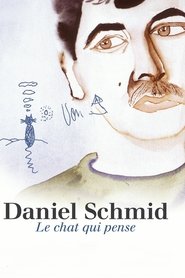 When director Daniel Schmid grew up...
When director Daniel Schmid grew up...Daniel Schmid: Le Chat Qui Pense 2010
When director Daniel Schmid grew up, his parents ran a hotel in the Alps, and this singular setting was to influence his film. Rather by coincidence he came to Berlin in the early 1960s and became part of the new German wave. Schmid worked with, among others, Wenders and Fassbinder, for example as an actor in Wender’s The American Friend. He met Ingrid Caven, who was to play a diva in several of his films. This is a documentation of a part of modern European film history and a good analysis of artistry and how it corresponds to the individual behind the camera. A wealth of archival footage brings us close to many directors and actors in Schmid’s circle. If you’ve never seen a Daniel Schmid film, you are sure to want to after watching this portrait of his life.
 A naive girls love for Switzerland...
A naive girls love for Switzerland...Beresina 1999
A naive girl's love for Switzerland is put to the test in this satiric comedy. Irina is a woman from Russia who all her life has always been fascinated by Switzerland and longs to live there some day, though her notion of Swiss life has more to do with Heidi and old movies set in the Alps than reality.
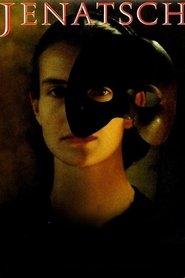 A journalist is assigned to interview...
A journalist is assigned to interview...Jenatsch 1987
A journalist is assigned to interview an eccentric anthropologist who has exhumed the skeleton of Jörg Jenatsch, a revered freedom fighter who was mysteriously murdered in 1639. Initially disinterested, the journalist begins to uncover unflattering truths about the national hero and experiences visions in which he seems to be witnessing events that transpired over 300 years ago. As he obsessively pursues the investigation, his personal life and his grip on reality disintegrate, drawing him relentlessly toward the fatal carnival at which Jenatsch was killed.
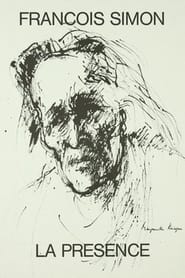 The work of legendary actor Franois...
The work of legendary actor Franois...Francois Simon the Presence 1986
The work of legendary actor François Simon, son of Michel Simon.
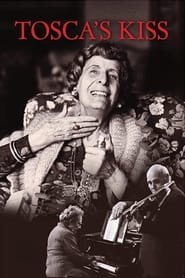 Memoirs of the Italian Opera by...
Memoirs of the Italian Opera by...Tosca's Kiss 1984
Memoirs of the Italian Opera by the singers and musicians of the Casa Verdi, Milan, the world’s first nursing home for retired opera singers, founded by composer Giuseppe Verdi in 1896. This documentary, which has achieved cult-like status among opera and music lovers, features former singers who reminisce about their careers and their past operatic roles.
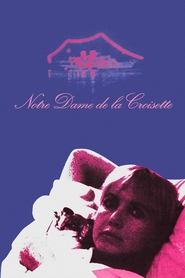 A woman goes to Cannes and...
A woman goes to Cannes and...Notre Dame de la Croisette 1983
A woman goes to Cannes and, lost in its chaos and unable to obtain tickets, ends up watching it on television from her hotel room.
 Set amid the European community in...
Set amid the European community in...Hecate 1982
Set amid the European community in an unspecified North African country, a colony on the verge of nationalism just before the war. And colonized is what happens to a French diplomat, Julien Rochelle, when he meets the mysterious beauty Clothilde de Watteville. Schmid 's favorite axiom, that love is projection, never had such a thorough airing. Is Clothilde really the wife of a French official now holed up in Siberia? Or is she Hecate, goddess of black magic and devourer of the Arab boys she meets far from the European quarter? Only our projections know for sure; for the rest, she is a "woman looking out into the night." Drawn from a novel by Paul Morand, who based the main character on his wife Helene, Schmid's film achieves an atmosphere of magic in which psychological credibility is not so much absent as irrelevant-a film that distances itself from the drama it invokes, perhaps as the elusive Clothilde turns her back on the madness she provokes.
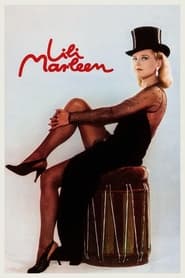 The story of a German singer...
The story of a German singer...Lili Marleen 1981
The story of a German singer named Willie who while working in Switzerland falls in love with a Jewish composer named Robert whose family is helping people to flee from the Nazis. Robert’s family is skeptical of Willie, thinking she could be a Nazi as she becomes famous for singing the song “Lili Marleen”.
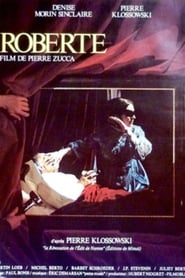 Roberte 40 resistant during the war Calvinist...
Roberte 40 resistant during the war Calvinist...Roberte 1979
Roberte, 40, resistant during the war, Calvinist and anticlerical, is deputy to the chamber and inspector of Censorship. She married Octave, an old Catholic aesthete, professor of canon law, whom she saves from impeachment for collaboration during the war. He submits his wife to a perverse custom: the laws of hospitality or prostitution of the wife by the husband.
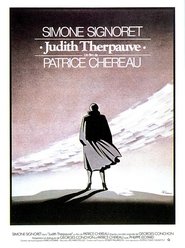 A former hero of the French...
A former hero of the French...Judith Therpauve 1978
A former hero of the French anti-Nazi resistance is approached by old comrades to lead a financially struggling liberal newspaper. Initially reluctant, she takes on the challenge, mortgaging her house to keep it afloat. As conservative forces intensify their opposition, she is eventually forced to sell the paper, seeing it as a personal failure.
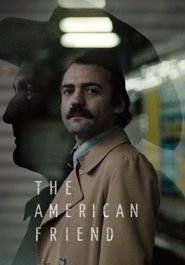 Tom Ripley an American who deals...
Tom Ripley an American who deals...The American Friend 1977
Tom Ripley, an American who deals in forged art, is slighted at an auction in Hamburg by picture framer Jonathan Zimmerman. When Ripley is asked by gangster Raoul Minot to kill a rival, he suggests Zimmerman, and the two, exploiting Zimmerman's terminal illness, coerce him into being a hitman.
 Beautiful detached laconic consumptive Lily Brest...
Beautiful detached laconic consumptive Lily Brest...Shadow of Angels 1976
Beautiful, detached, laconic, consumptive Lily Brest is a streetwalker with few clients. She loves her idle boyfriend Raoul who gambles away what little she earns. The town's power broker, called the rich Jew, discovers she is a good listener, so she's soon busy. Raoul imagines grotesque sex scenes between Lily and the Jew; he leaves her for a man. Her parents, a bitter Fascist who is a cabaret singer in drag and her wheelchair-bound mother, offer no refuge. Even though all have a philosophical bent, the other whores reject Lily because she tolerates everyone, including men. She tires of her lonely life and looks for a way out. Even that act serves the local corrupt powers.
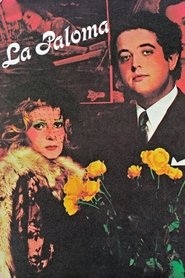 Nightclub singer La Paloma succumbs to...
Nightclub singer La Paloma succumbs to...La Paloma 1974
Nightclub singer La Paloma succumbs to the persistent courting of a chubby rich admirer and marries him. Before the marriage, she was thought to be dying, but soon she is well. She believes her husband's love has cured her, but her efforts to love him begin to fade as she discovers true love with her husband's old school friend.
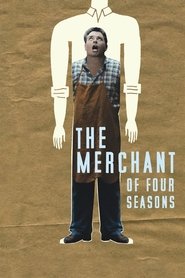 Hans is a street fruit peddler...
Hans is a street fruit peddler...The Merchant of Four Seasons 1972
Hans is a street fruit peddler and born-loser. His choice of career upsets his bourgeois family, causing him to turn to drinking and violence. After recovering from a debilitating heart attack, his business finally begins to take off. However the more he becomes a credit to his family, the more depressed he becomes.
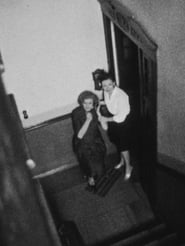 Daniel Schmids actual first feature made...
Daniel Schmids actual first feature made...Miriam 1969
Daniel Schmid's actual first feature, made during his (later abandoned) studies at the German Film and Television Academy Berlin (DFFB), is an attempt at an unusual horror film: A little girl asks an older lady to buy her a cinema ticket. They discover that their names are both Miriam. The precocious girl forces her way into the lady's flat at night and demands a snack and presents. When the impudent child wants to move in with her the next day, the lady asks her neighbors for help.
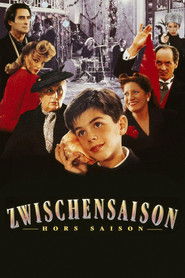 The formerly great Swiss hotel which...
The formerly great Swiss hotel which... A young man raises the dead...
A young man raises the dead... Experimental fiction film about young people...
Experimental fiction film about young people...